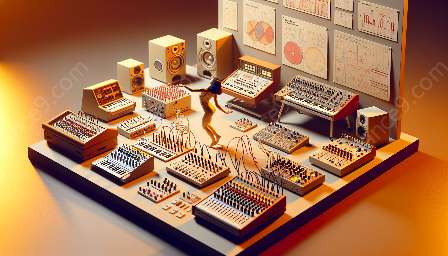Introduction to Sampling in Dance Music Production:
Sampling plays a significant role in creating original compositions in dance music production. It involves taking a portion of an existing sound recording and reusing it in a new composition. In the context of dance and electronic music, sampling is a prevalent and essential technique that allows producers to create unique and innovative tracks.
Understanding Sampling:
Sampling involves taking a snippet of music, sound effect, or vocal from a pre-existing recording and incorporating it into a new piece of music. This technique allows producers to add depth and diversity to their compositions by integrating existing sounds into their work. In the context of dance and electronic music, sampling can range from using drum loops, vocal phrases, synth lines, or any other recorded sounds.
Creating Original Compositions:
Sampling serves as a key tool for creating original compositions in dance music production. By utilizing samples, producers can manipulate and combine various elements to generate unique and dynamic tracks. Additionally, sampling empowers producers to experiment with different sounds, textures, and rhythms, ultimately leading to the development of innovative and original compositions.
Role of Sampling in Electronic Music:
Sampling is intrinsic to the creation of electronic music. It enables producers to layer and blend different samples to produce complex and intricate soundscapes. The use of samples allows for the exploration of diverse sonic landscapes, contributing to the evolution and diversity of electronic music genres.
Sampling and Remixing:
Remixing, a prevalent practice in dance and electronic music, often involves the use of sampling. Producers reimagine and reinterpret existing tracks by incorporating sampled elements and reworking them into new compositions. This intertwining of sampling and remixing further emphasizes the significance of sampled material in the creation of original dance music compositions.
Legal and Ethical Considerations:
While sampling is a powerful and creative tool, it is essential for producers to be mindful of legal and ethical considerations. Obtaining proper clearance and permissions for using samples is crucial to avoiding copyright infringement and respecting the original creators of the sampled material. Furthermore, understanding the legal framework surrounding sampling and remixing is vital for maintaining ethical practices in music production.
Innovation and Creativity:
Sampling contributes to the innovation and creativity in dance and electronic music production. Producers can draw inspiration from a wide range of musical sources and infuse their compositions with diverse cultural and historical references through sampling. This process of combining and reimagining existing sounds fosters a culture of artistic exploration and boundary-pushing in the electronic music scene.






























